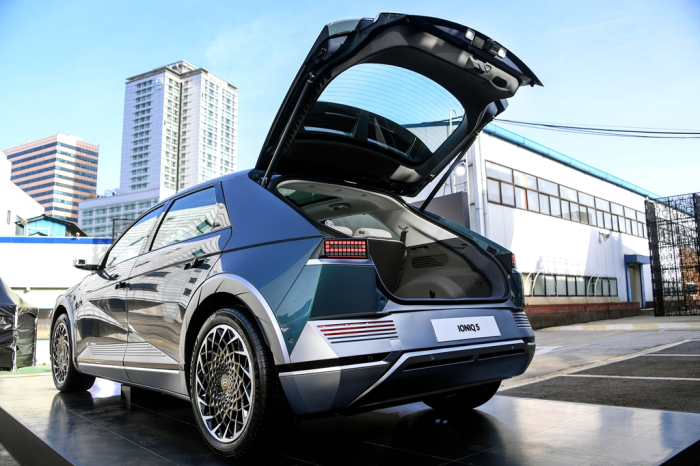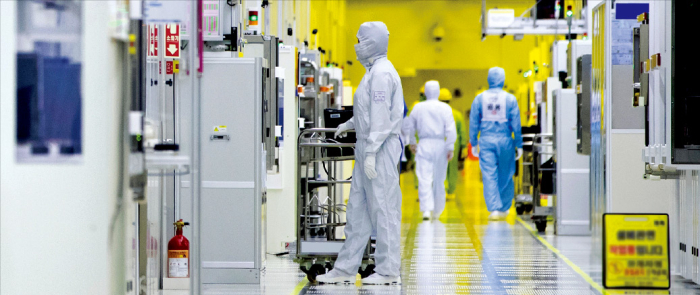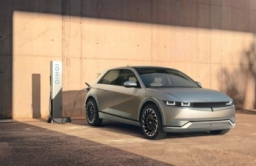-
KOSPI 2812.05 +41.21 +1.49%
-
KOSDAQ 756.23 +6.02 +0.80%
-
KOSPI200 376.54 +6.64 +1.80%
-
USD/KRW 1373 3.00 -0.22%
With chipmakers in full gear, Hyundai Motor poised for rebound
Market resilience
With chipmakers in full gear, Hyundai Motor poised for rebound
By
May 18, 2021 (Gmt+09:00)
3
Min read
News+

Shares of Hyundai Motor Co. have been trapped in a boxed range for more than four months after falling from an all-time high in early January of 289,000 won.
Back then, investors snapped up the stock for days on media reports that the top South Korean automaker looked to be in early stages of talks with Apple Inc. to jointly develop and produce self-driving electric cars.
However, the company denied the reports and investors dumped the stock in disappointment, triggering a slide in its share price.
Hyundai Motor’s shares have also been depressed by growing concerns over depleting automotive chips amid an overall semiconductor shortage across industries, which forced global automakers to intermittently halt their plants.
With major chipmakers in high gear to ramp up their production capacity, Hyundai Motor shares are apparently among those poised to rebound as investors say they are too cheap to pass up.
“Hyundai Motor will post better earnings in the second half. There’s no doubt about it,” said Meritz Securities analyst Kim Joon-sung.
“Its shares will rebound if the company’s car sales over the next couple of months continue at the current pace.”
On Tuesday, Hyundai Motor's shares finished up 1.8% at 231,000 won in line with the broader Kospi market's 1.2% gain.
CHIPMAKERS RAMP UP FACILITIES
The global chip shortage, which began with a declining supply of automotive chips, has been crippling swaths of industries beyond the electronic devices sector, disrupting supply chains worldwide.
For the auto industry, one of the first sectors hit by the global chip shortage, the situation has been worse, with companies like GM, Ford and Volkswagen idling some of their factories.

Hyundai Motor and affiliate Kia Corp. have also put some of their domestic plants on hold, compromising production of their flagship models, including the Sonata and Grandeur sedans as well as the electric vehicle IONIQ 5.
In response, chipmakers around the world, from Intel Corp. to top foundry player Taiwan Semiconductor Manufacturing Co. (TSMC), have pledged billions of dollars of investment to build more plants.
TSMC recently said it expects the global chip shortage to improve from June as chipmakers are reversing facilities to make automotive chips.
Despite the tough business conditions, Hyundai Motor last month reported that its first-quarter net profit nearly tripled to the highest level in four years, driven by pricey sport utility vehicles and premium Genesis models.
In the US, one of Hyundai’s biggest overseas markets, the company posted its best-ever monthly sales for the second consecutive month in April.
US INVESTMENT OFFERS TAILWIND FOR VALUATION
Analysts said Hyundai Motor’s EV push will also help raise its stock’s valuations going forward.
Last week, Hyundai Motor Group said it will pump $7.4 billion into its US operations by 2025, with a focus on future mobility segments, including electric cars.

The investment will be used in the areas of EVs, hydrogen vehicles, urban air mobility (UAM), robotics, autonomous driving as well as enhancement of its existing production facilities in the US.
In December of last year, Hyundai said that its autonomous driving joint venture Motional Inc. and US-based ride-hailing company Lyft have joined forces to offer robotaxi services, or self-driving taxis, across major US cities in 2023.
“The current chip shortage will have a limited impact on Hyundai Motor’s share price,” said Korea Investment & Securities analyst Kim Jin-woo. "Maybe it's not a good idea to wait until the uncertainty is over."
Write to Sung-Mi Shim at smshim@hankyung.com
In-Soo Nam edited this article.
More To Read
-
 Future mobilityHyundai Motor to make EVs in US with $7.4 bn investment by 2025
Future mobilityHyundai Motor to make EVs in US with $7.4 bn investment by 2025May 14, 2021 (Gmt+09:00)
-
May 04, 2021 (Gmt+09:00)
-
Apr 23, 2021 (Gmt+09:00)
-
Apr 22, 2021 (Gmt+09:00)





